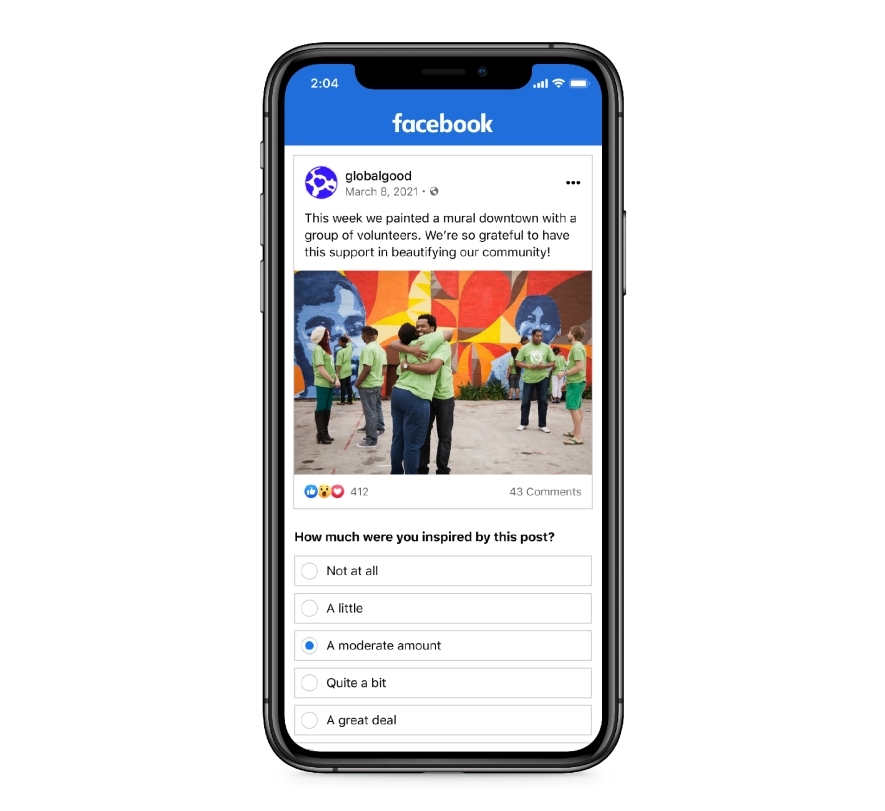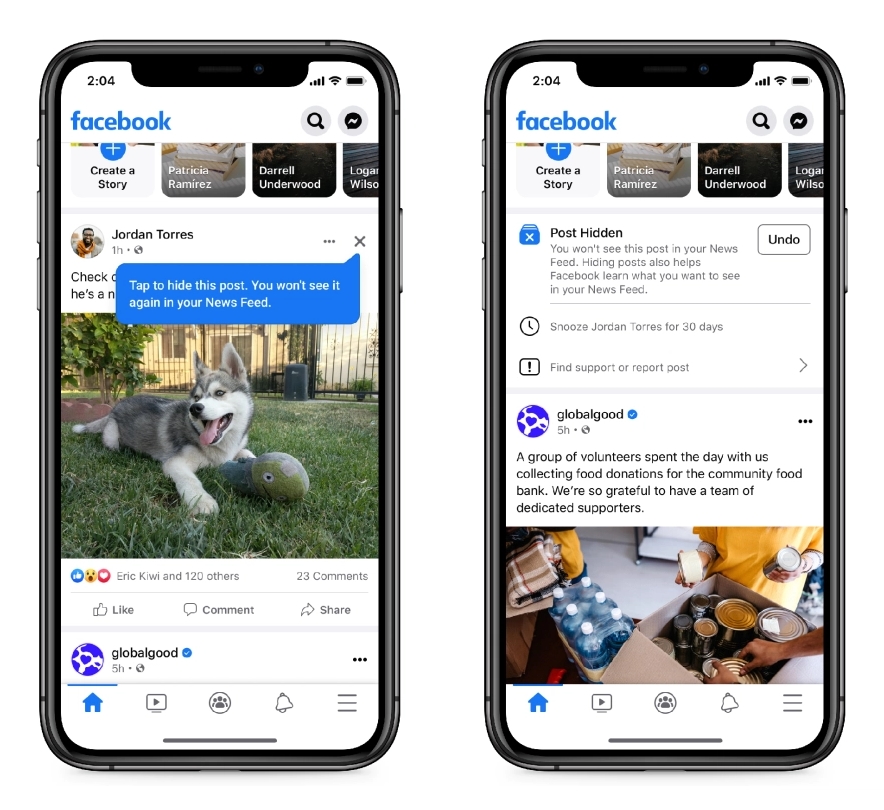Facebook Wants Your Opinion About Its Content
Facebook is making major changes to its news feeds in a new bid to create a better experience for users in the near future. Before it can do so, though, the company is seeking feedback from users.
As the company recently announced, it is revamping parts of the news feed system to encourage four specific types of user feedback to better understand content. In the future, Facebook intends to use this information to create new ranking signals to directly decide what content users see.
Specifically, the company says it aims to gather answers to these four questions to get better at providing quality content in the future:
Is This Post Inspirational?

Facebook’s feeds have a bad reputation for highlighting negative content which can turn into a feedback loop of endless “doom scrolling.” With this in mind, the social network is looking to deliver more inspirational or uplifting content for users.
As the announcement says:
“To this end, we’re running a series of global tests that will survey people to understand which posts they find inspirational. We’ll incorporate their responses as a signal in News Feed ranking, with the goal of showing people more inspirational posts closer to the top of their News Feed.”
Is This Content Interesting?
Perhaps the most important factors for users scrolling through content is whether any of it is actually interesting to them. At times, it can feel like you can scroll for hours without seeing anything exciting or particularly relevant to their interests.
“… we know sometimes even your closest friends and family share posts about topics that aren’t really interesting to you, or that you don’t want to see. To address this, we’ll ask people whether they want to see more or fewer posts about a certain topic, such as Cooking, Sports or Politics, and based on their collective feedback, we’ll aim to show people more content about the topics they’re more interested in, and show them fewer posts about topics they don’t want to see.”
Do You Want To See Less of This Content?
A huge part of Facebook’s reputation for negative content is the huge amount of political content shared on the social network.
Since many turn to social media to connect with family, friends, and get away from the pressures of the real world, a large amount of political content can be tiresome and potentially make them less likely to check their feed regularly.
Further, there are times where you might show an interest in a topic and start seeing an influx of tangentially related content that is not especially useful to you. Think clicking one particularly interesting headline and suddenly seeing tons of content on that topic, even though it’s not really that interesting to you.
To help with this, the company will start surveying users about content they have responded negatively to in order to create a ranking signal to deliver more relevant and positive content.
Was Giving Feedback Easy?

In some form or another, Facebook has given users the ability to deliver this type of feedback for several years. The problem is that finding the tools to do so was often a game of hide and seek.
To make it easier for users to give feedback, the company is testing a new post design which will include a more prominent button to hide “irrelevant, problematic, or irritating” content and see less content like it in the future.
How This Will Affect Facebook Rankings
For now, it is unclear exactly how much this will change the content appearing in our news feeds every day.
The company appears to know it has gained a nasty reputation for being overly political, sharing divisive information, and generally being a somewhat negative place to spend your time.
Still, it remains to be seen whether this will lead to a massive shift or if these ranking signals will be too little to effectively change what gets highly ranked and what people are sharing on the platform in general.
“Overall, we hope to show people more content they want to see and find valuable, and less of what they don’t. While engagement will continue to be one of many types of signals we use to rank posts in News Feed, we believe these additional insights can provide a more complete picture of the content people find valuable, and we’ll share more as we learn from these tests.”







Leave a Reply
Want to join the discussion?Feel free to contribute!